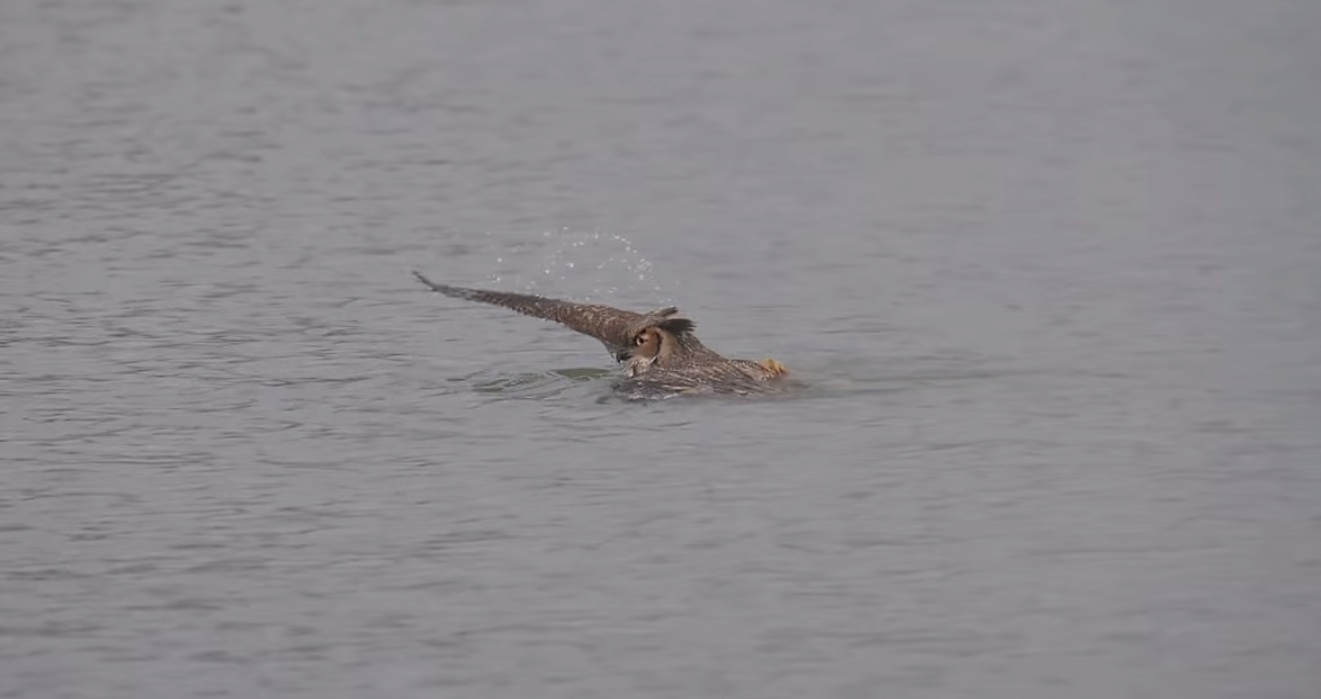Great Horned Owl Takes a Dip in Lake Michigan

Get the world’s most fascinating discoveries delivered straight to your inbox.
You are now subscribed
Your newsletter sign-up was successful
Want to add more newsletters?

Delivered Daily
Daily Newsletter
Sign up for the latest discoveries, groundbreaking research and fascinating breakthroughs that impact you and the wider world direct to your inbox.

Once a week
Life's Little Mysteries
Feed your curiosity with an exclusive mystery every week, solved with science and delivered direct to your inbox before it's seen anywhere else.

Once a week
How It Works
Sign up to our free science & technology newsletter for your weekly fix of fascinating articles, quick quizzes, amazing images, and more

Delivered daily
Space.com Newsletter
Breaking space news, the latest updates on rocket launches, skywatching events and more!

Once a month
Watch This Space
Sign up to our monthly entertainment newsletter to keep up with all our coverage of the latest sci-fi and space movies, tv shows, games and books.

Once a week
Night Sky This Week
Discover this week's must-see night sky events, moon phases, and stunning astrophotos. Sign up for our skywatching newsletter and explore the universe with us!
Join the club
Get full access to premium articles, exclusive features and a growing list of member rewards.
A great horned owl went for an unexpected swim in Lake Michigan this week, after two peregrine falcons forced it into the water, according to Chicago birders who saw the territorial skirmish firsthand.
Steve Spitzer, a birder and photographer who lives near Chicago, filmed the owl's athletic water strokes shortly after the bird entered the lake, he told Chicago station WGN-TV.
Owls are known for their nearly silent flight, but it's not unheard of to see one go for a dip, said Julia Ponder, the executive director of The Raptor Center at the University of Minnesota. [Daring Duos: Unlikely Animal Friends]
For an owl, "if you go after something in the water, and you accidentally get too wet, then sometimes it's easier to swim to shore than it is to fly with wet feathers," Ponder told Live Science.
Birds are known to use their feathery wings as paddles, but it's more common to see an eagle than an owl swimming in a river or lake. "They are often in areas near water," Ponder said. "You have to have those skills."
But swimming is thought to help great horned owls grab midnight snacks. The owls are known to prey on water birds that roost on the open water at night. "Swimming to shore is a natural and necessary follow-up activity when an owl finds itself having splashed down in the middle of a body of water going after prey," said Marc Devokaitis, a spokesperson at the Cornell Lab of Ornithology in New York.
Once an owl swims to shore, it will typically fluff out its feathers to dry.
Get the world’s most fascinating discoveries delivered straight to your inbox.
"They'll shake it off," Ponder said. "They'll preen a bit. They'll rouse. They'll go up into a tree and let their feathers dry."
The incident that sparked the Chicago owl's aqueous escape is also common, Ponder said. Peregrine falcons often prevent other top predators from trespassing into their territory. The clash was likely a way for the peregrine falcons to indicate that "this is my space, and you need to move on," Ponder said.
The onlookers called a bird rescue team, but the owl flew away before the team arrived, WGN reported.
Follow Laura Geggel on Twitter @LauraGeggel. Follow Live Science @livescience, Facebook & Google+. Original article on Live Science.

Laura is the managing editor at Live Science. She also runs the archaeology section and the Life's Little Mysteries series. Her work has appeared in The New York Times, Scholastic, Popular Science and Spectrum, a site on autism research. She has won multiple awards from the Society of Professional Journalists and the Washington Newspaper Publishers Association for her reporting at a weekly newspaper near Seattle. Laura holds a bachelor's degree in English literature and psychology from Washington University in St. Louis and a master's degree in science writing from NYU.
 Live Science Plus
Live Science Plus







